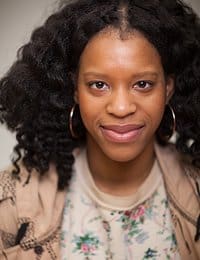
Major: Bachelor’s Degree in Applied Food Studies
Campus: Hyde Park, NY
Hometown: Brooklyn, NY
How did you become interested in your major?
While attending CIA and pursuing my associate degree in 2014, I was unsure about whether I was going to pursue my bachelor’s degree. I was interested in food education/policy and, at the time, CIA’s Applied Food Studies program did not exist. It wasn’t until I came close to my graduation date in October 2014 that I heard CIA was creating a new degree focused on food studies, which is a critical examination of food and its context within science, arts, and society. I jumped at the opportunity when it was presented to me. What stood out to me about this program was the room for creativity to explore food issues and notions surrounding food. I knew that this program would fulfill my desire to make a profound impact on the world.
Who most influenced your decision to pursue this career?
My mother was not only an influential being in my life, but she also sparked my interest in food—without her, I wouldn’t be where I am today. Although she was not in the industry, she was known as “the chef” of the family for her innovative and tasty inventions in the kitchen. I would always watch her cook and entertain guests, as she worked her domain. The bond that we shared over food was intimate. Unfortunately, she passed away at an early age and my time with her was short-lived. She was a jovial, eccentric, strong, and independent woman who wanted the best for me, and her spirit is still present. The moments that we shared and still share spiritually are the reason why she is the biggest influence in my life.
Did you have to overcome any obstacles or challenges to come to CIA?
Yes, my original anticipated graduation date was in December 2015; unfortunately, due to financial problems, I was unable to graduate and had to take a leave of absence. After being dependent on loans for awhile, I had to figure out my next step—and that was to apply for scholarships. I applied through the school and was very fortunate to receive one that helped cover the rest of my tuition. This helped me enroll back in the school in January 2016. This is a challenge that I am grateful for because it made me realize how important it is to value what I have and not take things for granted.
Why did you choose CIA?
At the tender age of 10, I knew that I was going to attend CIA. One day, I stumbled across some mail; particularly, a flyer stood out to me advertising CIA as the premier culinary school. I was captivated by the school’s mission and drive. I wanted to immerse myself with like-minded individuals who lived and breathed food. I wanted to learn profound information about the culinary industry from talented and intellectual chefs and professors who cared about food just as much I did. I wanted to be challenged physically and stimulated academically. It was the right choice for me to attend CIA.
What do you like best about CIA?
I really enjoy the degree that I am pursuing so far. The Applied Food Studies is a thought-provoking and creative program that gives students the opportunity to become visionary artists in a classroom setting. By touching on all topics associated with food, students have the opportunity to expand our horizons on what we perceive food to be outside of the kitchen. With classes like Food Policy, Anthropology of Food, and Ecology of Food, students really have a chance to test their critical thinking skills on food injustice issues.
What is/are the best lesson(s) you’ve learned while at CIA or what advice would you give to new students?
The best lesson I’ve learned at CIA is time management. I think it is extremely essential to value time, inside and outside of school. Prioritizing one’s time is a life lesson that goes beyond CIA and I am still learning and training myself how to manage my time efficiently.
What are your career goals or plans right after graduation?
I am currently applying for non-profit organizations that focus on food equity in impoverished communities. My immediate plan after graduation is to join the FoodCorps, which is a nationwide team of leaders who connect children to nutritious food and educate them on healthy eating. This program will provide the hands-on experience of educating the youth, working on farms, connecting with others, and become a part of team whose mission is to help end hunger. My ultimate goal for the future is to have my own non-profit focusing on helping communities get access to healthier foods so that they are no longer considered a food apartheid area. I hope to make an impact on small communities first, and then, the world.
What advice would you give to someone who is considering attending CIA?
Focus on you! I cannot stress how important it is to focus on your goals and desires. Self-motivation is the key to success; you have to decide for yourself if CIA is the right choice for you. Also be open to receiving help from others. No one is alone in this process of completing a CIA degree and there are resources that can help, if needed. Don’t be afraid to ask for it because this can help shape you to become stronger within yourself, and it can also help you help others if they need support.